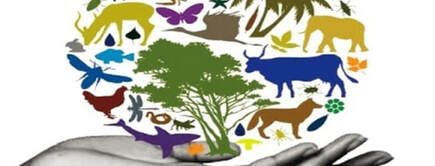
Sunday, July 19, 2020
First Congregational Church of Cheshire
© the Rev. Dr. James Campbell
Romans 8:12-25
So then, brothers and sisters, we are debtors, not to the flesh, to live according to the flesh— for if you live according to the flesh, you will die; but if by the Spirit you put to death the deeds of the body, you will live. For all who are led by the Spirit of God are children of God. For you did not receive a spirit of slavery to fall back into fear, but you have received a spirit of adoption. When we cry, “Abba! Father!” it is that very Spirit bearing witness with our spirit that we are children of God, and if children, then heirs, heirs of God and joint heirs with Christ—if, in fact, we suffer with him so that we may also be glorified with him. I consider that the sufferings of this present time are not worth comparing with the glory about to be revealed to us. For the creation waits with eager longing for the revealing of the children of God; for the creation was subjected to futility, not of its own will but by the will of the one who subjected it, in hope that the creation itself will be set free from its bondage to decay and will obtain the freedom of the glory of the children of God. We know that the whole creation has been groaning in labor pains until now; and not only the creation, but we ourselves, who have the first fruits of the Spirit, groan inwardly while we wait for adoption, the redemption of our bodies. For in hope we were saved. Now hope that is seen is not hope. For who hopes for what is seen? But if we hope for what we do not see, we wait for it with patience.
Humans are made in the very image of God. This is a foundational belief for Jews and Christians, and one which has strongly influenced my own theology for years. For many people, however, to say that humans are made in the image of God is to also imply that we are the only ones who are. But I wonder if that image of God is not imprinted upon the whole creation.
As a child, I loved plants and animals. And I also loved rocks and dirt and sunsets and the smells of the seasons. Looking back, I guess I was a bit of a child mystic who saw God everywhere, and who saw image reflected a thousand different ways.
That makes me an outlier of sorts. It’s true that a theology of separation between humans and everything else has dominated the thinking of the church for centuries. But here’s one thing to remember when talking about human made theology: even when it’s popular that doesn’t make it necessarily so.
This theology of the supremacy of humans, or as I call it, a theology of domination, has had some very bad consequences. Domination theology becomes a convenient excuse for us to do with earth as we see fit; as if we are God. We bless all sorts of selfish and destructive actions, we blithely call “progress.” And then we slap God’s name on it as if that will excuse our actions.
And then to make it all worse, we get lost in ideological arguments that keep us stuck where we are, while the earth convulses and species go extinct and sea levels rise, flooding Florida neighborhoods on sunny days. But we still insist on domination and the illusion of control and the absolute love of money above everything else. And then we have the audacity to claim that this is the way God intended it to be.
In his foundational epistle to the church at Rome, St. Paul uses graphic language to describe the suffering of creation as it waits for us to grow up. He likens this suffering to the pain and blood of childbirth. But like childbirth, Paul has a vision of something new being born; a time in which the suffering of creation is relieved.
Listen again to his words: “For the creation waits with eager longing for the revealing of the children of God; for the creation was subject to futility… (But) the creation itself will be set free from its bondage to decay and will obtain the freedom of the glory of the children of God. We know that the whole creation has been groaning in labor pains until now…”
So there it is – a description of the suffering of all creation, along with a promise that creation will be saved as we grow more and more into our potential. Very lovely words indeed, but how are we to understand this incredulous promise when we are bombarded daily with predictions of doom? Does it simply mean that God will rescue us from the messes we have made? Or does it mean that we have a role to play in salvation? And if we play a role, then hope must be a major building block of our theology.
Does this all sound like crazy talk, new age babble, theology run amok? Well, it’s actually some very old theology. The church has not always and in every place taught a theology of domination. The great Francis of Assisi, converted to Christ as a young man, saw intimate connections between us and creation and the God who made it all. He referred to his Brother Sun and his Sister Moon and his Mother Earth. These were not metaphors for Francis. They were expressions of praise and adoration and intimacy and connection.
For Francis of Assisi and the Celtic Christians and others in history, humans do not dominate or stand above the creation. Humans are of the earth, formed of the dust of the earth (Genesis 2:7). And this earth, from which we come, does not belong to us. The earth is the Lord’s. (Psalm 24:1). Therefore, every act of conservation and preservation and ecological advancement is an act of praise for the One who made it all.
It’s too late, some say. There is nothing I can do about it, many others say. We are afraid. We are overwhelmed. We are in deep denial. Cynicism is our most natural defense mechanism. But it’s not the most faithful response, because Christians have always been called toward hope. Despite whatever is happening around us; despite what we cannot see, we have been called to live in hope - not magical thinking, not head in the sand, not denial, but hope.
We are not the first people to be called to live in hope despite our fears. God’s people in every age have lived with dire existential threats. They have lived under the crushing brutality of Empire and hideous years of war and the threat of famine and the specter of epidemics and the terror of annihilation. But in each of these times, God’s people have been called to lean into what has been promised, and then to do what we can, in our own place and time, in our own corner of creation, to make those promises a reality. We do what we can.
In the 2014 film The Man Who Stopped the Desert we see what hope in action can actually do in the face of overwhelming odds. Yacouba Sawadogo is an illiterate farmer from the West African nation of Burkina Faso. But this simple man has done more to reverse the ravages of drought, brought on by over-farming, deforestation, and climate change than any Western intervention. Sawadogo’s unorthodox methods have turned 50 acres of harsh desert into lush forest. How did he do it? Well, it was all rather simple. First, he dug something called “Zai holes.” They are much deeper and wider than what is usually used for planting. Then he filled the Zai holes with water-absorbing compost. Then he used small stones to create pathways for the rainwater to fill the holes. Then he planted trees and vines and crops in those Zai holes. Whenever it rains, the stone paths direct more water to the holes and when it doesn’t rain, the compost retains the dampness necessary for the plants to thrive. In the beginning, the other farmers mocked him in his hopefulness. Government officials tried to dissuade him. But Yacouba persisted. The end results? He and others like him now enjoy “food sovereignty.” And because of him and his hopeful connection back to creation, the desert blooms and rejoices, to use a phrase from the Bible. And in his tiny corner of the world, the groaning of creation has eased.
Fear paralyzes us, making us believe the poisonous lie that there is nothing we can do. But hope, which is the gift of God to every person, moves us into action, no matter how small. And hope is a far more efficient fuel than fear. It lasts longer and its source is inexhaustible – because “our hope is in the name of the Lord, who made heaven and earth.” (Psalm 124:8)
Thanks be to God. Amen.

 RSS Feed
RSS Feed